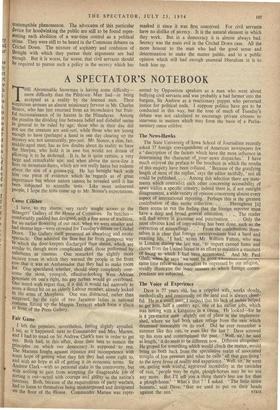Fair Game
I left the premises, nevertheless, feeling slightly appalled. I sat, as it happened, next to Commander and Mrs. Marten, and I had to tread on Sir Andrew Clark's toes in order to get out. Both had, in this affair, done their best to sustain the principles on which our democracy is supposed to rest. The Martens fought against injustice and incompetence with scant hope of getting what they felt they had some right to, and with no hope at all of getting it on economic terms. Sir Andrew Clark—with no personal stake in the controversy, but With nothing to gain from accepting the disagreeable job of sorting it out—acted with courage and ability in the nation's interests. Both, because of the requirements of party warfare, had to listen to themselves being misinterpreted and denigrated on the floor of the House. Commander Marten was repre- sented by Opposition speakers as a man who went about bullying civil servants and was probably a bad farmer into the bargain, Sir Andrew as a reactionary puppet who perverted justice for political ends. I suppose politics have got to be conducted in this way, but the tone of much of Tuesday's debate was not calculated to encourage private citizens to intervene in matters which may form the basis of a Parlia- mentary cause célèbre.


































 Previous page
Previous page